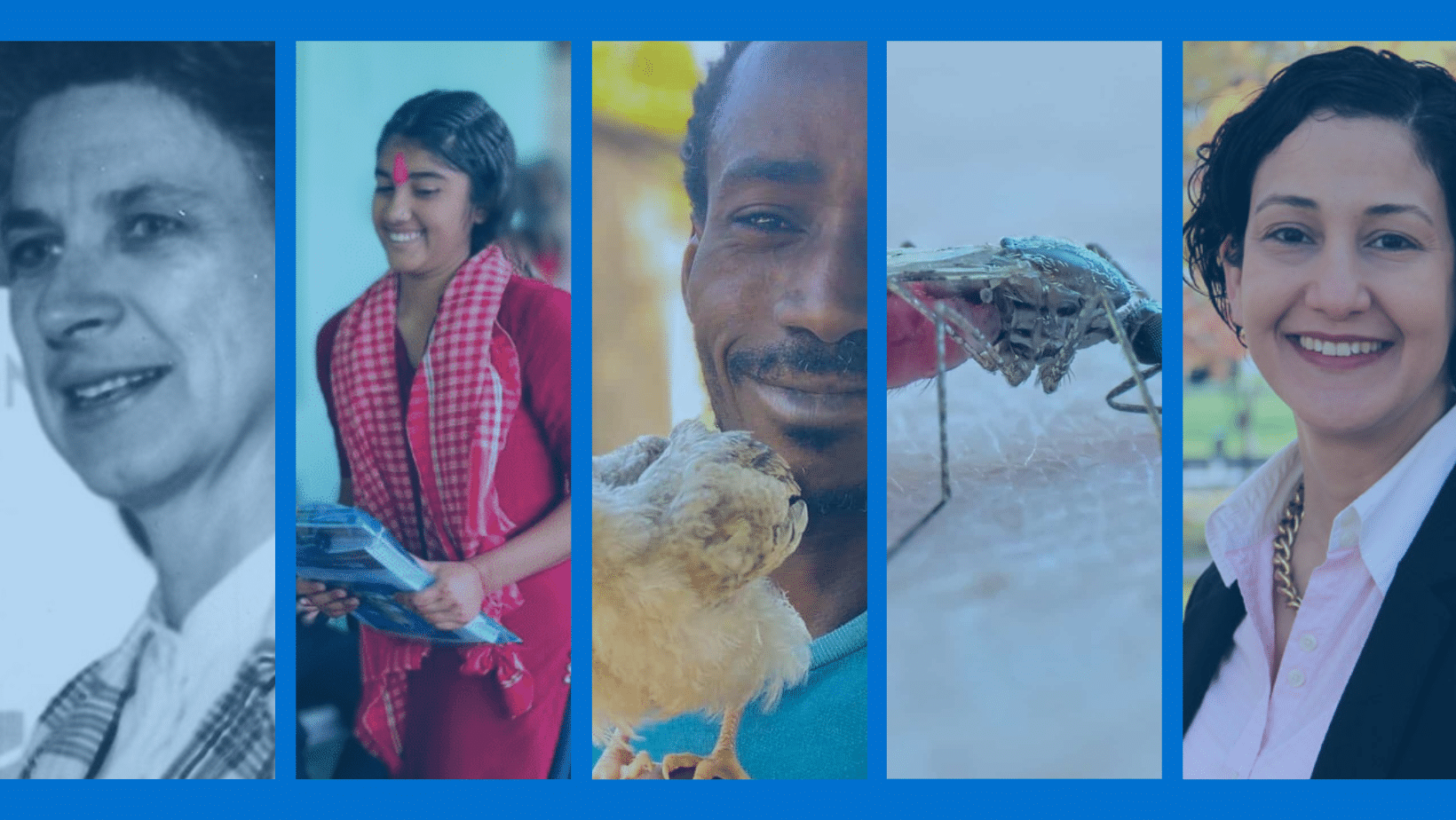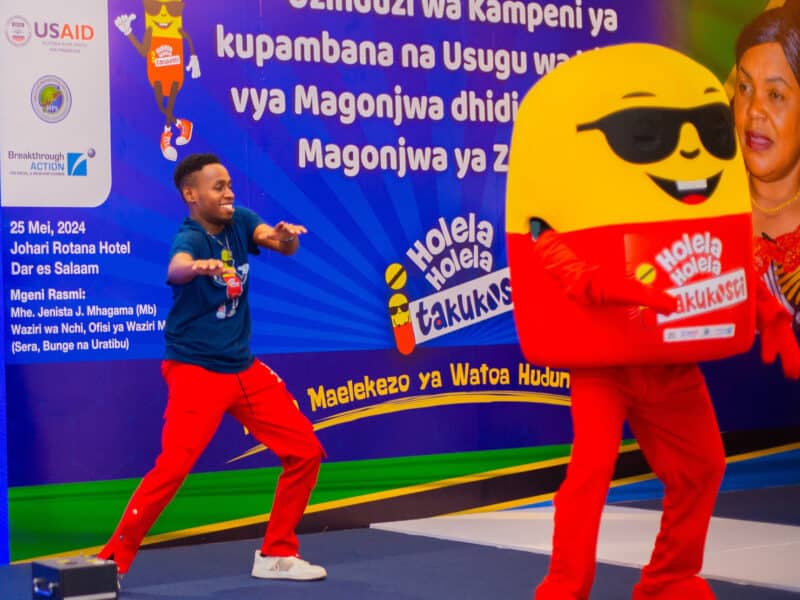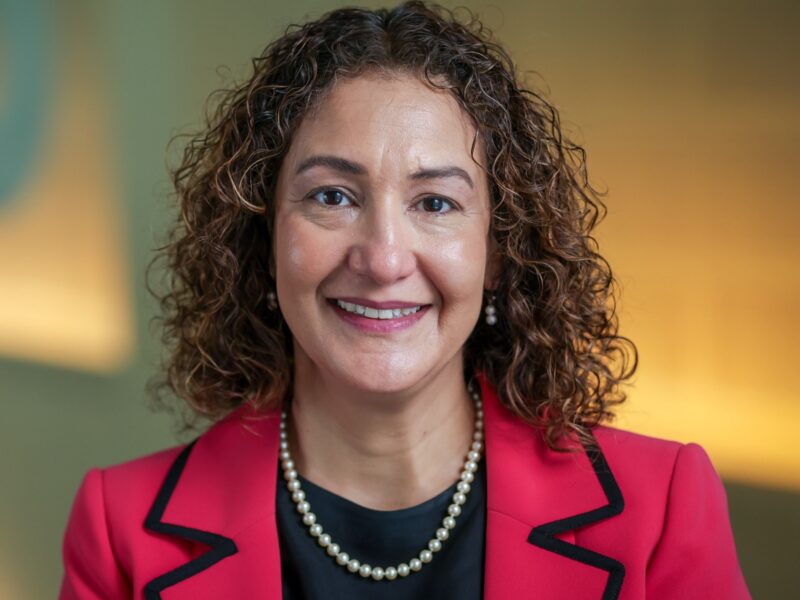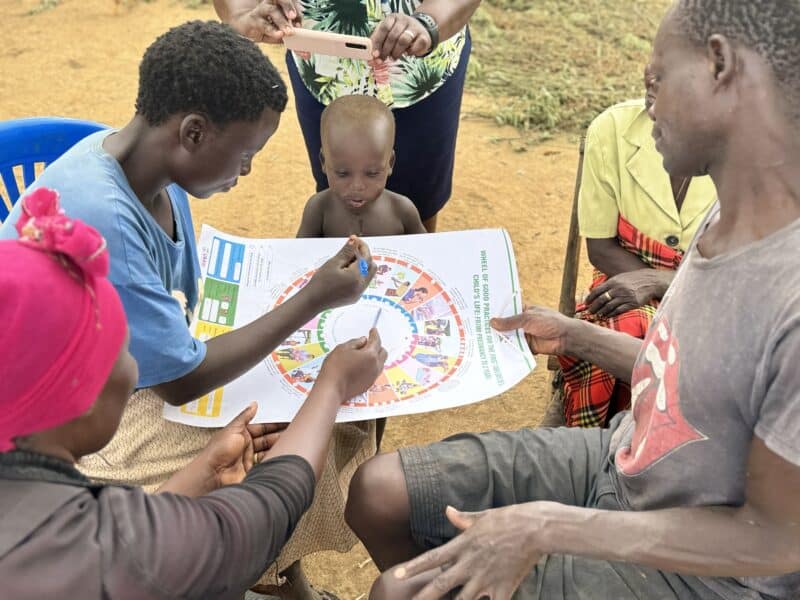This year marked the Johns Hopkins Center for Communication Programs’ 35th year, celebrated with fun videos and fond memories (and cake!) and a look toward the future of the organization.
It was a big year in other ways, too. In March, Debora B. Freitas López became just the fourth executive director in the history of CCP and has hit the ground running with priorities that include expanding the center’s work in the United States, where CCP has a long history with Baltimore and is seeking more opportunities for growth. CCP started new projects in the Democratic Republic of Congo and Ethiopia and with youth and gender around the world. In the meantime, CCP continues work in more than 40 countries, leading USAID’s flagship global social and behavior change project, Breakthrough ACTION, and its flagship global knowledge management program, Knowledge SUCCESS, among others.
CCP kept busy around the world, inspiring healthy behaviors in everything from family planning to nutrition to infectious diseases to water, sanitation and hygiene. CCP is also working to end malaria and child and early forced marriage and reduce the spread of zoonotic diseases and tuberculosis.
As we look ahead to 2024, here’s a recap of CCP’s Top Five blog posts of 2023.
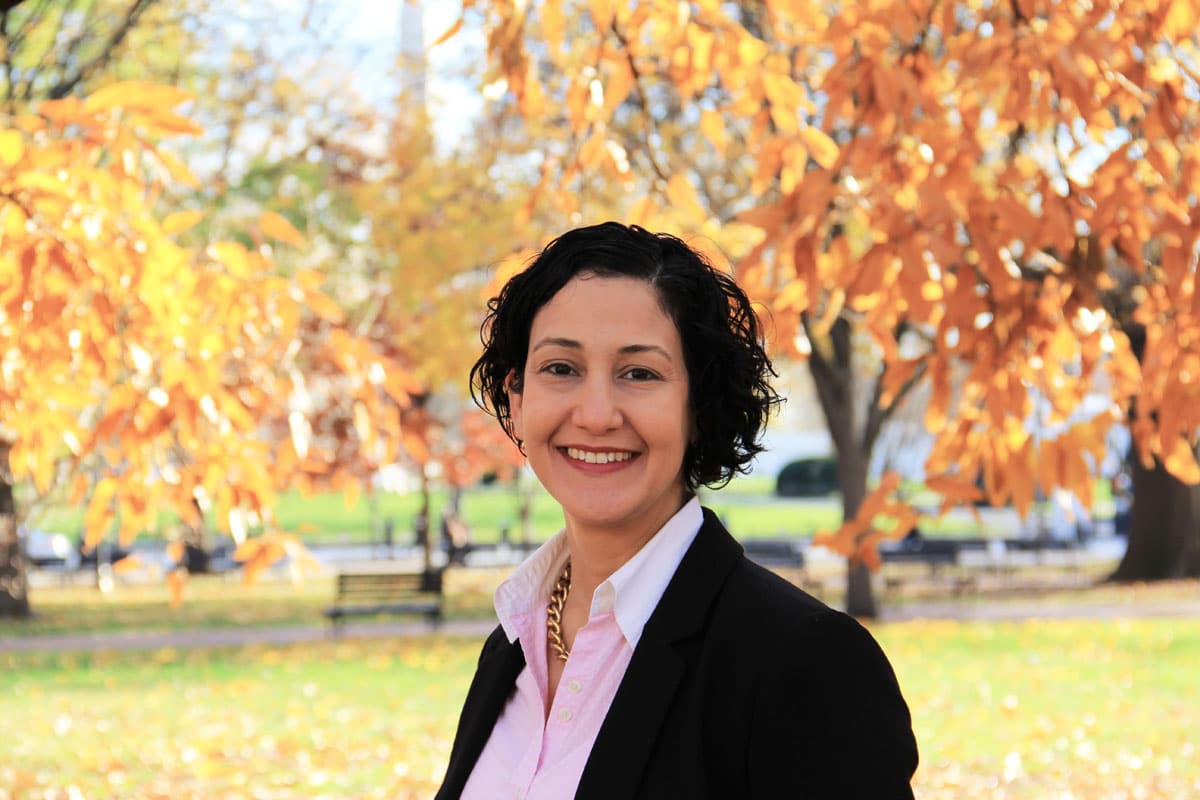
Debora B. Freitas López Named CCP’s New Executive Director
Feb. 14
Debora B. Freitas López, MS, a global leader in social and behavior change communication with experience across Latin America and the Caribbean, Africa and Asia, was chosen in February as the fourth executive director in CCP’s 35-year history.
The Brazilian-born Freitas López, who has 20-plus years of experience in international development and social and behavior change communication, has served on various global boards and technical groups, including recently as the chair of the Global Alliance for Social and Behaviour Change. She also is part of FP2030’s Family Planning High Impact Practices Technical Expert Group and served two terms on the Steering Committee for the SBC Working Group of RBM Partnership to End Malaria.
“We are thrilled to welcome Debora to the Bloomberg School,” said Dean Ellen MacKenzie, PhD, SCM. “Her experience and passion make her ideally suited to lead CCP in its continued work to harness the power of communication and community partnerships to advance healthy behaviors around the world. As executive director, Debora will chart a strong course for the future and help the terrific team at CCP make an even greater impact.”
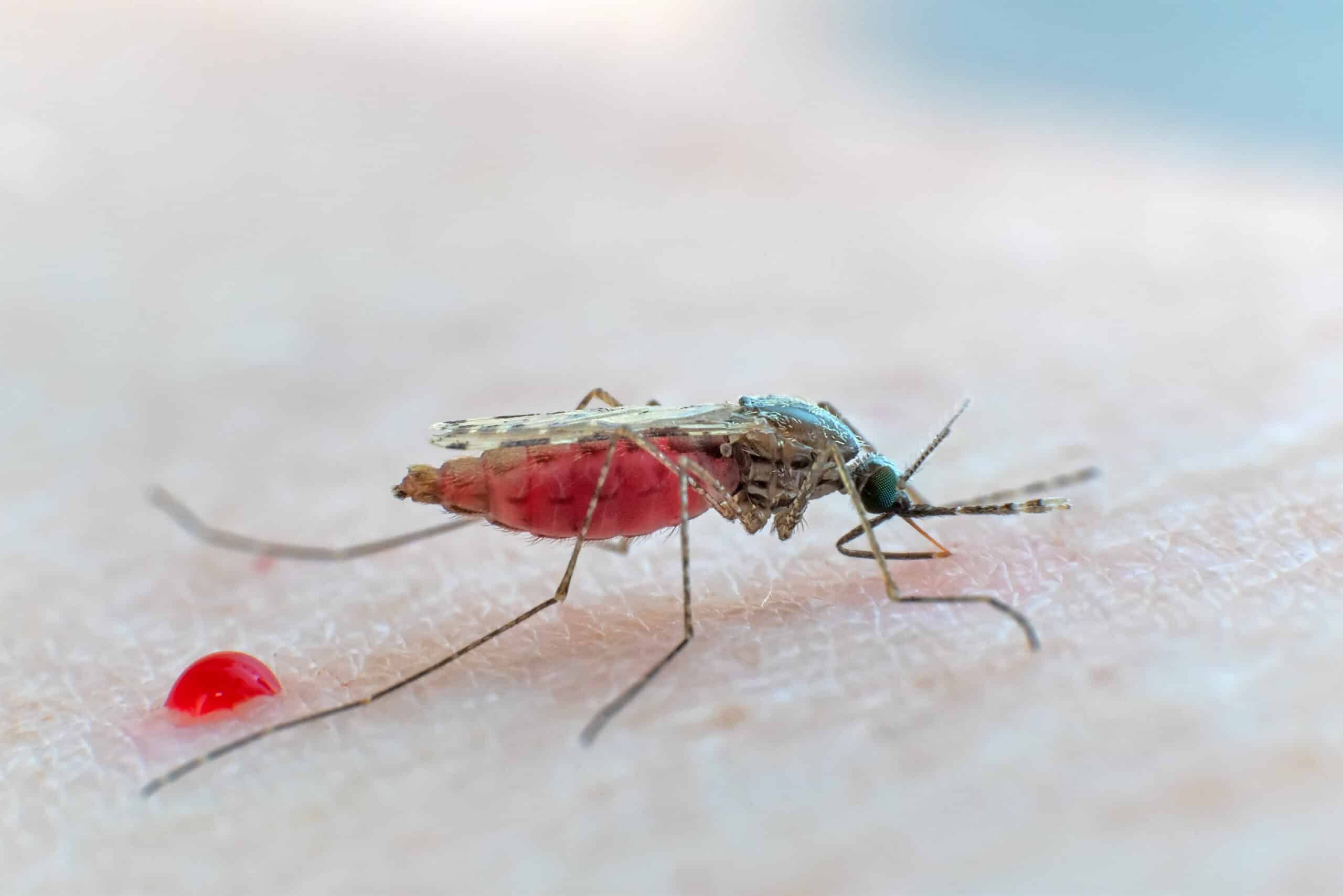
How to Manage a New Malaria Mosquito in Africa
April 25
With Anopheles stephensi – the Asian malaria mosquito – increasingly being found in sub-Saharan Africa (most recently in Kenya), countries are facing a new infectious threat: Managing a malaria-carrying species that behaves differently than the ones they are used to fighting.
Other species of Anopheles mosquitoes that spread malaria in Africa tend to be found in rural areas, primarily transmit malaria in the rainy season, and bite in the middle of the night while people are asleep, behaviors addressed by sleeping under insecticide-treated bed nets and spraying inside homes.
But An. stephensi poses a distinct challenge: It is often found in urban areas, in the same standing water that breeds Aedes aegypti, the mosquito that carries dengue, Zika and more. It often bites in the earlier part of the night when people are awake and not protected by bed nets.
As a different challenge requires a different set of solutions, the CCP-led Breakthrough ACTION project released an evidence-based social and behavior change guidance in response to the threat. The guidance, supported by the U.S. President’s Malaria Initiative (PMI), will help ministries of health and partners promote evidence-based individual, household, and community behaviors to reduce An. stephensi populations to reduce the spread of malaria.
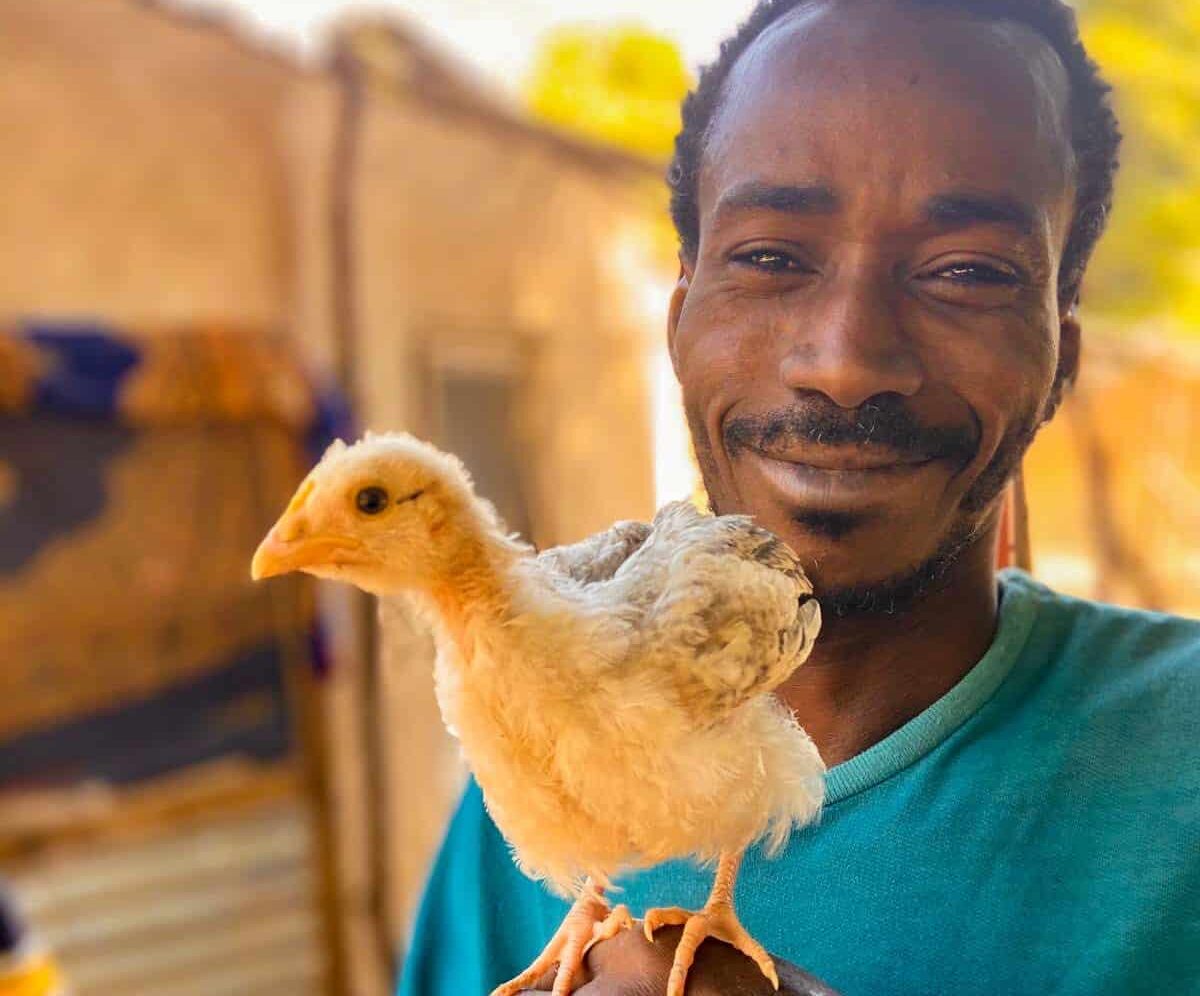
Using Behavioral Data to Prevent and Respond to Zoonotic Disease Outbreaks
May 8
The more humans push out into what was once land occupied only by animals, the more we see the rise of zoonotic diseases – that is diseases that are transmitted between animals and humans.
After three years of a pandemic, we are all aware of COVID, which likely spilled over from a wild animal and has been passed among people (and other animals) ever since. But other, more localized outbreaks are occurring simultaneously, from the multi-country outbreak of mpox to the recent re-emergence of Marburg virus, which is transmitted by fruit bats, in Tanzania and Equatorial Guinea.
The CCP-led Breakthrough ACTION project, with USAID Global Health Security funding, has developed an online toolkit based on CCP research that equips people to collect behavioral data on zoonotic diseases.
The Zoonotic Behavioral Research Assessments (ZBRA) provides resources for conducting qualitative and quantitative research to inform strategic social and behavior change interventions to prevent zoonotic spillover and stop outbreaks before they become epidemics. ZBRA is also designed to help people in affected countries identify quick research and social listening strategies that can be implemented immediately when a threat appears to ensure they can wage an effective response.
“In emergencies, people must have the information that they need in a way that they can understand it and is motivational to them,” says CCP’s Natalie Tibbels, who is leading the effort.
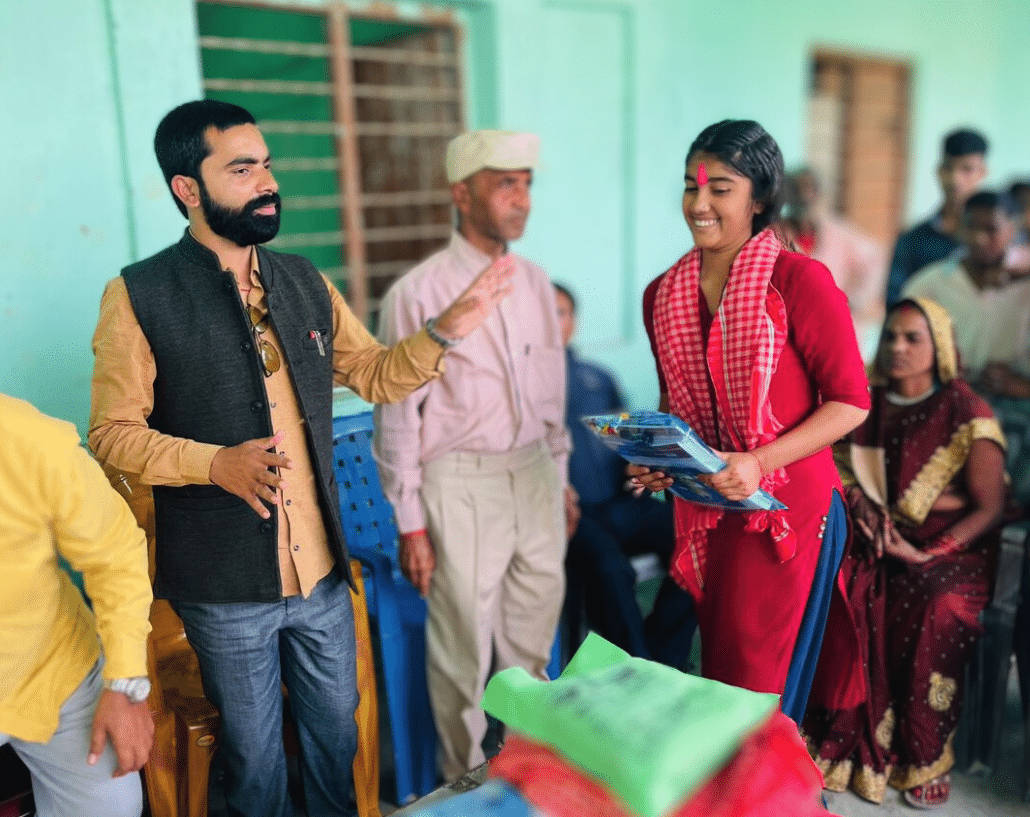
Scholarship Aims to Keep Nepali Girls in School and Avoid Early Marriage
Oct. 11
To tease out some of the reasons why child, early and forced marriages are so common in Nepal – and to develop ways to halt the practice – municipalities in Nepal have work with the CCP-led Breakthrough ACTION project to find ways to change existing early marriage social norms.
One of the potential local solutions developed in a human-centered design process was to award scholarships to girls, paid for through a municipality’s budget, to show appreciation for girls and support them so that they can avoid early marriage. Now, there are scholarships for all children in public schools during 11th and 12th grades in two project municipalities. Thanks to the scholarships, more than 459 students can continue their studies. The municipalities aim to continue the program for years to come.

Nov. 6
As the CCP turns 35, we take you back to the very beginning of the center with a Q&A with the person who started it all, Phyllis Tilson Piotrow, PhD. While CCP officially became a center in 1988 and later moved to the Health, Behavior and Society Department in 2005, the work truly began in 1978 when Piotrow and her colleagues were awarded a USAID grant to distribute Population Reports, a first-of-its-kind publication that distributed regular pieces on the state of the contraception landscape around the world, and POPLINE, a collection that provided health personnel and researchers in low- and middle-income countries with access to journal articles, reports, books, unpublished resources, and abstracts in a time where very little was available to them.
Now 90, Piotrow recently sat down with Stephanie Desmon, CCP’s director of PR and communications to reflect on when the center was in its infancy with a small budget and a handful of employees, to today, when CCP works on large global projects and employs people in dozens of countries around the world.

